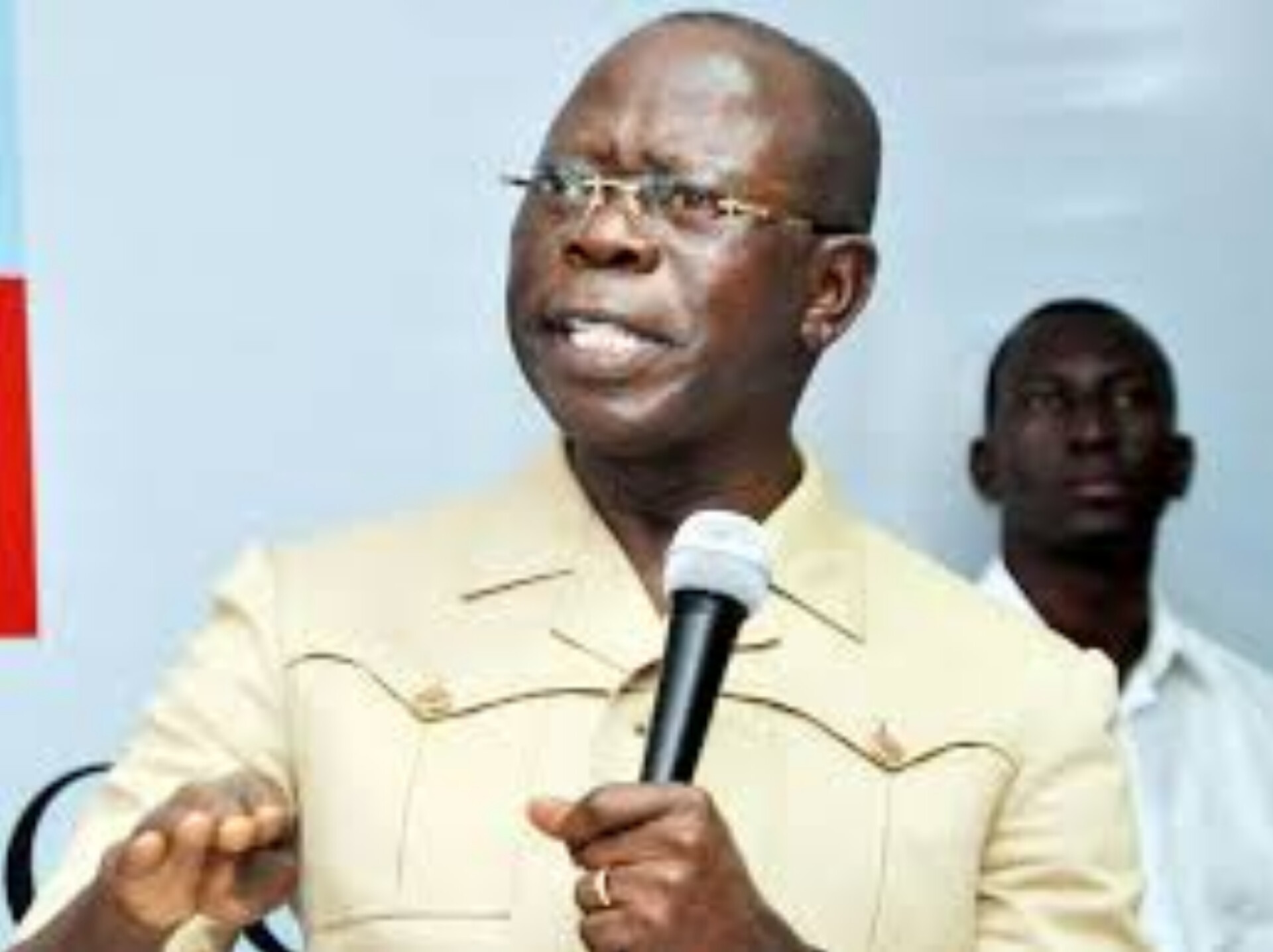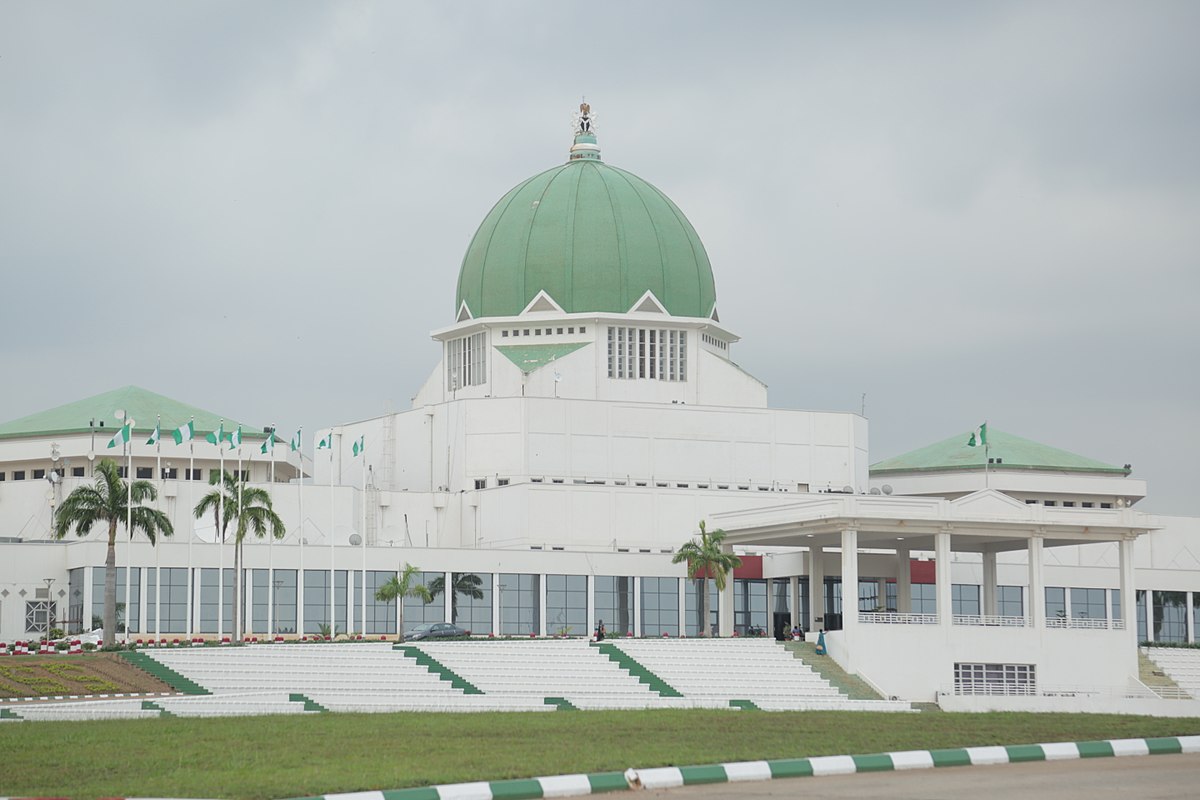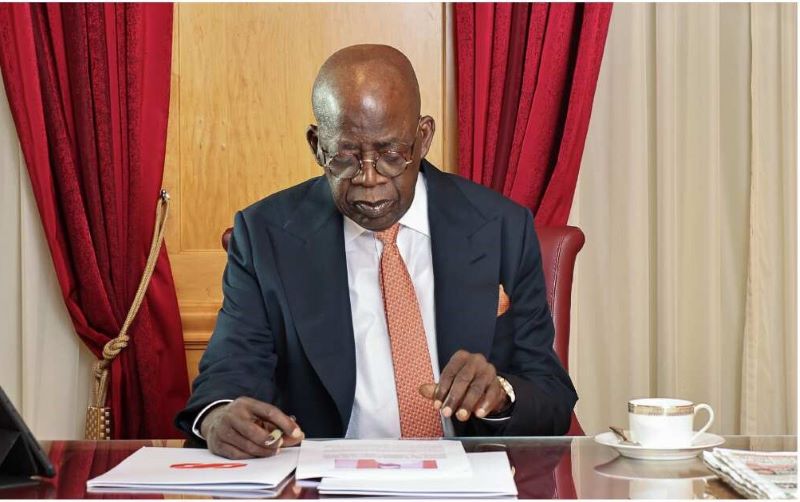Legislature
Interior Ministry generates N1.195b revenue on Expatriate quotas in 10 months

***As lawmakers tackles Minister on issuance
****Alleges foreign prisoners are being smuggled into Nigeria as contruction workers
The Ministry of Interior has generated N1.195billion from January to October this year thereby surpassing its budgetary target of N600million revenue from issuance of expatriate quotas in the 2023 fiscal year
The National Assembly however through its joint committee of the Senate and House of Representatives on Interior, took up the ministry on issuance of the expatriate quotas, which it says, served as avenue for stealing jobs from Nigerians in Nigeria by expatriates.
Merit and demerits of issuance of the expatriate quotas by the Interior Ministry to deserving foreign companies, came up during budget defence session which the Minister of the Ministry, Hon Olubunmi Tunji – Ojo had with the joint Committee on Interior on Wednesday.
The Minister in his presentation indicsted that in 2022 and outgoing 2023 fiscal years , the Ministry surpassed its budgetary revenue projections on expatriate quotas and marriages.
He specifically told the panel that in 2023, while N600m was targeted as revenue to be generated from issuance of expatriate quotas to deserving foreign firms in the country, N1.195billion, has been generated as at October 31, 2023.
“Aside the projected revenue from expatriate quotas that had been surpassed by about N600m extra, the N380million projected revenue from marriages, has also been surpassed by over N500m with N892.774m realised as at October 31, 2023”, he said.
But the Chairman of the joint committee, Senator Adams Oshiomhole (APC Edo North), told the Minister that while it is heartwarming that the Ministry surpassed its revenue targets on issuance of expatriates quotas but the policy is giving room for expatriates to takeover jobs meant for Nigerians in Nigeria.
“Your Ministry needs to regulate issuance of the quotas very well as i have on good authority that prisoners from foreign land are working in Nigeria as construction workers .
“This is even different from the age long fraud the oil companies have been carrying out in the country through the policy of expatriate quotas by making our own qualified engineers to work under foreign technicians.
“Many non Nigerians are in the country, some of them live inside containers. I even believe and dare say it that there are foreign prisoners who are working in Nigeria. They were shipped to our country to serve their prison terms.
“They were being paid according to their country’s minimum wage by the construction industry that brought them. I don’t want to mention the company’s name but if I am provoked, I will mention them.
“Honourable Minister, this is a serious issue, prisoners are not expected to work in their countries if the product or whatever they engage in is meant to be exported”, he said.
But the Minister in his response, assured the committee members that the Ministry had already come up with project for job protection for Nigerians .
The project according to him , is Expatriate Employee Network (EEN) primarily aimed to safeguard jobs meant for Nigerians from been stolen by expatriates and also prevent expatriate workers from evading tax payment in Nigeria.
Legislature
Adebayo Defends National Assembly’s Power to Remove CCT Chairman

The Social Democratic Party (SDP) presidential candidate in the 2023 general election, Prince Adewole Adebayo, has addressed the controversy surrounding the National Assembly’s removal of the Code of Conduct Tribunal (CCT) chairman.
Speaking on the matter, Adebayo argued that the legislature acted within its authority and emphasized the importance of integrity in public institutions saying that they have the power to remove the president and Commander-in-Chief of the Atmed Forces
The Nigerian Senate last Wednesday, invoked Section 157(1) of the 1999 Constitution (as amended) to remove the Chairman of the Code of Conduct Tribunal (CCT), Danladi Umar, from office.
The decision followed the adoption of a motion sponsored by Senate Leader, Senator Opeyemi Bamidele (APC-Ekiti), during plenary.
The motion titled “Invocation of Provision of Section 157(1) of the Constitution for Removal of the Chairman of the CCT” was unanimously supported by the Senate.
Senator Bamidele, while presenting the motion, emphasized the sacred role of the CCT in maintaining high moral standards in government business and ensuring public officials adhere to principles of accountability and integrity.
He argued that the conduct of Danladi Umar fell short of these expectations.
Key allegations against the embattled Chairman according to the Senate leader included Corruption and Misconduct with Multiple petitions alleging corruption and misappropriation of funds.
There were Reports of Mr. Umar being absent from office for over a month without official permission.
He was also accused of refusal to Cooperate with Senate Investigations as he only appeared once before the Senate Committee on Ethics, Code of Conduct, and Public Petitions and avoided subsequent invitations.
He was also accused of engaging a physical altercation with a security guard in the Federal Capital Territory, an incident described as unbecoming of a public servant coupled with ongoing investigations by the EFCC, ICPC, and DSS which the senate refferred to a gross misconduct and negligence.
The Senate replaced Umar with President Bola Ahmed Tinubu’s nominee Mr. Abdullahi Usman Bello whose appointment was confirmed on July 4, 2024.
This decision has sparked criticism, with some legal experts arguing that the legislative body relied on a section of the Constitution—Section 157(2)—that applies to the Code of Conduct Bureau (CCB) and not the tribunal.
Critics claimed the removal process was flawed and that the legislature overstepped its bounds.
However, Adebayo who is also constitutional lawyer of repute dismissed the assertions, asserting that the National Assembly has the constitutional authority to discipline public officers, including the CCT chairman.
Adebayo explained that under the principle of separation of powers, the executive, legislative, and judicial branches serve as checks on each other.
“The National Assembly has oversight powers over public institutions, including the judiciary. The CCT chairman, while heading a judicial body, is still a public servant subject to the disciplinary powers of other branches of government,” Adebayo said.
He added that the Code of Conduct Tribunal, unlike the superior courts, operates as a unique judicial body tasked with trying violations of the Code of Conduct. As such, it falls within the legislature’s purview to act when misconduct occurs.
“If the National Assembly and the executive agreed that an official should be removed, that decision stands. The same principle applies to other branches of government intervening in cases of misconduct within their counterparts,” he explained.
Adebayo emphasized that the debate should not be reduced to legal technicalities but should focus on the ethical standards required for such critical roles.
“The chairman of the CCT is the custodian of public ethics. Any hint of misconduct undermines public trust in the tribunal and the judiciary. Someone in such a position must be above reproach, as their role is to enforce the same standards they must exemplify,” Adebayo said.
Reports of alleged misconduct involving the former CCT chairman, including unprofessional behavior, have further fueled public outcry. Adebayo argued that officials in such positions should step down voluntarily when their integrity is questioned.
Addressing the legal arguments raised by critics, Adebayo highlighted the difference between the Code of Conduct Bureau (CCB) and the Code of Conduct Tribunal (CCT).
“The CCB is an administrative body under the executive, responsible for compliance and asset declaration. The CCT, on the other hand, is a judicial body tasked with trying violations of the Code of Conduct. While the two institutions are distinct, both are subject to oversight and discipline by the legislature and executive,” he explained.
Adebayo urged Nigerians to approach the issue with objectivity, focusing on accountability rather than partisan arguments.
“The removal of the CCT chairman is about preserving the integrity of our institutions. This is not a matter of partisanship or legal maneuvering—it’s about ensuring that public servants are held to the highest ethical standards,” he said.
While some critics have called for judicial intervention to challenge the removal, Adebayo maintained that the National Assembly’s actions align with constitutional principles.
He emphasized the need for public officers, particularly those in sensitive roles, to maintain the highest levels of decorum and professionalism.
“This incident should remind us of the importance of accountability in governance. The integrity of our public institutions must remain sacrosanct,” Adebayo concluded.
Legislature
NASS modifies NDLEA Act, Prescribes Life Imprisonment for Drug Traffickers

The National Assembly has modified the National Drug Law Enforcement Agency (NDLEA) Act to prescribe life imprisonment for individuals found guilty of storing, transporting, or concealing illicit drugs and substances.
The amendment was adopted on Thursday during plenary, presided over by Deputy Senate President Barau Jibrin, following broad support from the senators.
The amendment reflects a harmonised position of the Senate and the House of Representatives on Section 11 of the NDLEA Act.
The House had earlier passed an amendment prescribing life imprisonment for drug traffickers, while the Senate had proposed the death penalty.
To reconcile the differences, a conference committee of both chambers was convened. Senator Tahir Monguno, Chairman of the Senate Committee on Judiciary, Human Rights, and Legal Matters, presented the harmonised version to the Senate.
He urged lawmakers to adopt the House’s position of life imprisonment, arguing that enforcing the death penalty could lead to the execution of over 900 accused persons currently awaiting trial for drug-related offenses.
The Deputy Senate President who presided over the plenary had put the resolution to a voice vote, and the majority of senators supported the amendment.
The approved version stipulates life imprisonment for offenders.
The amended section now reads:
“Anybody who is unlawfully involved in the storage, custody, movement, carriage, or concealment of dangerous drugs or controlled substances and who, while so involved, is armed with any offensive weapon or is disguised in any way, shall be guilty of an offence under this Act and liable on conviction to be sentenced to life imprisonment.”
This amendment aims to strengthen the fight against drug trafficking while addressing concerns over human rights and the judicial implications of the death penalty.
The move is part of efforts to curb the growing menace of drug trafficking and its adverse effects on Nigerian society. According to Senator Monguno, the life imprisonment penalty strikes a balance between deterrence and humane judicial practice.
With the amendment, the NDLEA now has a robust legal framework to prosecute offenders and combat drug-related crimes effectively.
Legislature
President Tinubu urges Senate to approve ₦1.767trn External Loan

President Bola Ahmed Tinubu has formally requested the National Assembly’s approval for a $2.209 billion (₦1.767 trillion) external borrowing plan to finance part of the ₦9.17 trillion fiscal deficit in the 2024 budget. The loan, included in the 2024 Appropriation Act, is critical to the government’s broader strategy for economic recovery and growth.
In a letter to Senate President Godswill Akpabio, President Tinubu noted that the borrowing aligns with the provisions of Sections 21(1) and 27(1) of the Debt Management Office (DMO) Establishment Act, 2003. He also indicated that the Federal Executive Council (FEC) had approved the plan.
The President explained that the funds would be sourced through Eurobonds or similar external financial instruments. A detailed summary of the loan’s terms and conditions accompanied the letter to guide legislative scrutiny.
“This borrowing is necessary to address the budget deficit and fulfill our fiscal strategy for 2024. Swift approval will enable us to move forward with mobilizing these funds,” the President stated, emphasizing the urgency of the request.
Senate President Akpabio referred the matter to the Committee on Local and Foreign Deb
-

 Crime1 year ago
Crime1 year agoPolice nabs Killer of Varsity Lecturer in Niger
-

 News10 months ago
News10 months agoFCT-IRS tells socialite Aisha Achimugu not to forget to file her annual returns
-

 Appointment1 year ago
Appointment1 year agoTinubu names El-Rufai, Tope Fasua, others in New appointments
-

 News From Kogi1 year ago
News From Kogi1 year agoINEC cancells election in 67 polling units in Ogori-Magongo in Kogi
-

 News From Kogi1 year ago
News From Kogi1 year agoEchocho Challenges Tribunal Judgment ordering rerun in 94 polling units
-

 News1 year ago
News1 year agoIPOB: Simon Ekpa gives reason for seperatists clamour for Biafra
-

 Metro8 months ago
Metro8 months ago‘Listing Simon Ekpa among wanted persons by Nigeria military is rascality, intimidation’
-

 News11 months ago
News11 months agoKingmakers of Igu/ Koton-Karfe dare Bello, urge him to reverse deposition of Ohimege-Igu
